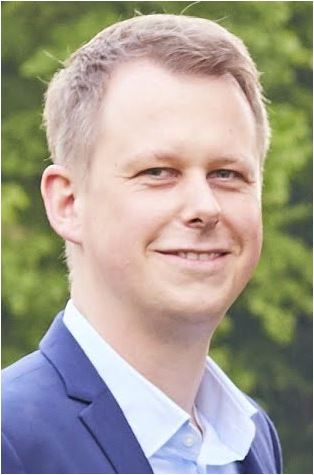Studying theoretical concepts in management research: Categorization, operationalization, and validation using PLS-PM
Tobias Müller is a PhD student in the department Product-Market Relations. (Co)Supervisors are prof.dr.ir. J. Henseler and dr. F. Schuberth from the faculty of Engineering Technology.
 This thesis is about categorizing, operationalizing, and validating theoretical concepts of management sciences in the structural equation modeling (SEM) context. In management sciences, most research examines the science of the existing, i.e., natural phenomena, and the science of the artificial, i.e., human-made phenomena. Therefore, management sciences are located at the intersection of the science of the existing and the science of
This thesis is about categorizing, operationalizing, and validating theoretical concepts of management sciences in the structural equation modeling (SEM) context. In management sciences, most research examines the science of the existing, i.e., natural phenomena, and the science of the artificial, i.e., human-made phenomena. Therefore, management sciences are located at the intersection of the science of the existing and the science of
the artificial. To make conclusions about the potential relationships among theoretical concepts of management research, it is important to clearly distinguish between behavioral concepts, which are assumed to exist in nature, and formed concepts, which are made or designed, giving rise to the first research question of this thesis:
- RQ1: How can behavioral and formed concepts be distinguished?
The type of theoretical concept should determine its operationalization. In a structural equation model, a behavioral concept is usually represented by a latent variable, and a formed concept is usually represented by an emergent variable. Partial least squares path modeling (PLS-PM) is a statistical method for estimating structural equation models containing latent and emergent variables. To assess behavioral and formed concepts with SEM and PLS-PM, the following second research question has to be answered:
- RQ2: How should PLS-PM be used to estimate structural models containing latent
and emergent variables?
To address RQ1, Chapter 2 reveals four distinguishing criteria that are meant to consistently assist researchers and practitioners in categorizing behavioral and formed concepts of management research. Chapter 3 provides an overview of the application of PLS-PM in hospitality management research to assess behavioral and formed concepts in different types of research, namely causal research, predictive research, descriptive research, and exploratory research. The fourth chapter presents guidelines on the practical application of PLS-PM in hospitality management research. It describes the steps of model specification, model identification, and model assessment when both behavioral and formed concepts are meant to be operationalized in a structural equation model. The fifth chapter functions as a bottom line of the previous three chapters by theoretically deducing the decision for behavioral and formed concepts that are meant to be modeled with SEM and estimated with PLS-PM. In doing so, the research presented in this thesis applies the relevant assessment criteria and combines behavioral science with design science to examine a contemporary management problem.




